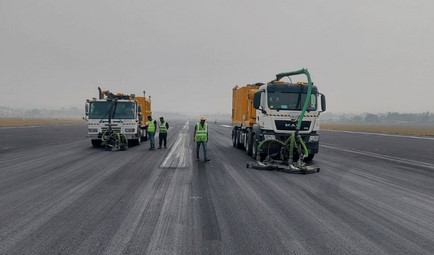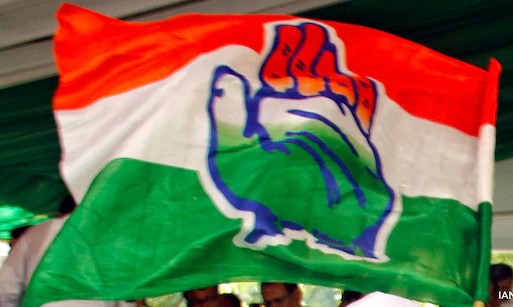Tridib Raman
Even though the wounds of the Air India plane crash tragedy in Ahmedabad are still fresh, it seems that despite this, the Ministry of Civil Aviation is forced to continue with its old ways. Trustworthy sources indicate that, as of today, at least one and a half dozen Indian airports are lacking a ‘Regular Airport Director’. Instead, they are being managed by ‘Temporary Airport Directors.’ At many airports, several posts for officers responsible for safety and security are lying vacant. It’s important to remember that the Airport Director plays the most crucial role in the smooth and safe operation of any airport. If we talk about the absence of regular Airport Directors, you can cite examples from the North like Prayagraj, Gorakhpur; from Central like Raipur; from South like Tirupati, Thoothukudi, and Rajahmundry airports; from Northeast like Dibrugarh, Silchar, Jorhat; and from West like Goa and Rajkot airports, where there are no regular Airport Directors. In the coming days, regular Airport Directors at Kolkata, Indore, Jammu, Pune, and Dehradun are also set to retire or complete their tenure. Sources suggest that the selection process for their replacements has been pending for several months. In most places where an Airport Director departs, the responsibility is temporarily handed over to the most senior officer there. The most surprising thing is that the Western Region doesn’t even have a Regional Executive Director. Similarly, many posts in maintenance and operations have been vacant for years. Even the positions for regular Safety Officers are being filled by bringing in people from other departments, whereas aviation experts say that ‘a Safety Officer undergoes a specific type of training; they should only be given significant responsibility after such training.’ The DGCA (Directorate General of Civil Aviation), which is also responsible for airport security, has exposed major security lapses at large airports like Delhi and Mumbai in its latest investigation. Immediately after the Ahmedabad accident, the DGCA has been investigating one airport after another, both big and small, where it is finding shortcomings at various levels. The investigation has also revealed that aviation companies and airport operators are grossly disregarding rules, which could lead to a major accident in the coming days. Furthermore, BCAS (Bureau of Civil Aviation Security), whose job also includes auditing airports, along with the DGCA, is also facing a severe shortage of manpower. So, in such a situation, the question naturally arises: ‘Are Indian Airports Running on God’s Grace?’
Rubber Deposits on Runways Can Also Cause Accidents
Tridib Raman

During the rainy season, runway maintenance becomes even more crucial and challenging because standing rainwater on the runway can lead to slipperiness. In such conditions, pilots of landing or taking off aircraft also need to exercise special caution. In this weather, runway maintenance work should continue smoothly. Generally, when aircraft land, rubber deposits from tires start accumulating on the runway, which affects the runway’s ‘friction value’. In simpler terms, continuous rubber deposits increase the slipperiness of the runway, posing a risk of the aircraft skidding during landing or takeoff. Usually, the runway’s friction value is regularly measured, and it also undergoes ‘visual observation’. Additionally, if any cracks are visible, immediate repairs are carried out. Rubber deposits are typically cleared from the runway either manually or by a special machine. Since the cost of this machine is very high, it’s not feasible to keep one at every airport. Therefore, these machines are kept in different zones and sent to specific airports as per demand. Sometimes, there’s a delay in the machine reaching the site, so the designated airport attempts to remove rubber deposits manually. If the ‘touchdown zone’ (where the aircraft’s wheels touch the runway) has a friction value within the prescribed limit, it is suitable for landing aircraft. If the friction value of a touchdown zone violates the prescribed limit, the Airport Authority must notify it. This information then reaches the aircraft pilot via ‘NOTAMs’. Pilots avoid making such notified areas their touchdown zone to prevent any untoward incidents.
The Bureaucrat’s Delhi
Tridib Raman
Ever since the BJP government came to power in Delhi under the leadership of Rekha Gupta, the role of four IAS officers, who are close to the PMO, is considered most decisive in running Delhi. They are playing a significant role in both policy formulation and implementation. For instance, the Chief Minister’s Principal Secretary, A. Anbarasu, is a 1996 batch IAS officer brought here from Puducherry. Similarly, Kaushal Raj Sharma, a 2006 batch IAS officer from the UP cadre, has been appointed CEO of the Delhi Jal Board. Sharma is counted among PM Modi’s most trusted officers, having previously served as the DM of Varanasi—the PM’s parliamentary constituency. Earlier, he served as the District Magistrate of Varanasi, which is also PM Modi’s parliamentary constituency. Sharma is largely credited with transforming Varanasi’s infrastructure, having completely changed the city’s face at the Prime Minister’s behest. Sources indicate that the PMO knows that CM Gupta and most of the ministers working under her leadership have zero administrative experience. Therefore, to guide them in the right direction, the PMO has deployed its officers in Delhi. Let’s talk about Delhi’s PWD Minister, Pravesh Verma, who also holds the portfolio of the Water Ministry. By bringing IAS Sharma into the Delhi Jal Board, the BJP high command has essentially given him a ‘free hand’. All important decisions in the Jal Board are now being taken by Sharma himself. As for the PWD, this department is run by a trio of officers: the Secretary, Additional Secretary PWD, and Chief Engineer PWD. Coincidentally, these three officers don’t particularly get along with the minister, but the department’s work is running smoothly because these officers know where to get their orders from.
Congress in Bihar: Running on God’s Grace
Tridib Raman

Bihar Congress’s newly appointed president, Rajesh Ram, has repeatedly claimed to his close associates that in the upcoming Bihar assembly elections, his party will give 85% of its tickets to SC, ST, backward, extremely backward, and Muslim candidates. This means that upper castes will receive only 15% of the tickets from the Congress quota. It’s understood that in alliance with the RJD and Left parties, Congress might get around 40 seats this time. If Ram’s assertion holds, this translates to only 6 seats for upper castes. Congress currently has 5 elected upper-caste MLAs, and giving them tickets again might be a compulsion for the high command. Akhilesh Singh, former Bihar Congress president and belonging to the upper-caste Bhumihar community, wants a ticket for his son, and ignoring him might not be possible for the Congress leadership. Brajesh Pandey, brother of well-known journalist Ravish Kumar, had arranged a meeting between Bihar Congress in-charge Krishna Allavaru and Lalu Yadav. Brajesh is also a strong contender for a Congress ticket. It’s said that sensing Rajesh Ram’s latest intentions, upper castes have already started to become disillusioned with Congress. Several upper-caste Congress leaders have even stopped visiting Sadaqat Ashram (Congress’s state headquarters). Meanwhile, the RJD is pressuring Congress not to give tickets to too many Muslim candidates. Rajesh Ram, the current MLA from the reserved Kutumba seat in Aurangabad, wants his wife to contest from there this time. He has already informed the party high command that since he needs to travel across Bihar to campaign for Congress, he doesn’t want to be tied to one seat.
BJP and Akali are Coming Closer Again
The recent results of the Ludhiana by-election have given the BJP and the Shiromani Akali Dal (SAD) an opportunity to reconcile. While the Akali Dal had been trying to rekindle its alliance with the BJP for some time, PM Modi himself had shown little interest—reportedly due to the Akalis’ aggressive stance against BJP leadership during the farmers’ protests in Delhi. However, Sukhbir Singh Badal, through his close aide Manjinder Singh Sirsa (now a minister in the Delhi government), has once again initiated backchannel talks with the BJP. Sirsa had quit the Akali Dal in 2021, citing personal reasons, and joined the BJP. Over the past few years, the rise of smaller hardliner parties in Punjab has further eroded the Akali Dal’s political ground. In such a scenario, an alliance with the BJP could be a lifeline for Sukhbir Singh Badal. In the Ludhiana bypoll, AAP’s Sanjeev Arora won with 35,000 votes, while the BJP secured 20,000 votes, and the Akali Dal managed 8,200 votes. The Congress had to settle for 24,000 votes. If the BJP and Akali Dal’s votes are combined (28,200), this alliance could emerge as the second strongest force in the state. The BJP is well aware of this—and for Sukhbir, maintaining this narrative is a political necessity.
Lotus Justice
JDU’s national executive president, Sanjay Jha, shares an extremely close relationship with the BJP’s top leadership. Hence, after ‘Operation Sindoor’, when Indian delegations of MPs were sent to different countries to present India’s stance, he was chosen to lead one of the key teams. Recently, the Union Ministry of Law and Justice hastily included both of Sanjay Jha’s lawyer daughters—Adya Jha and Satya Jha—in the Group ‘A’ panel to represent the central government in legal cases. It is noteworthy that both daughters hold LLM degrees from prestigious universities—Satya studied at Stanford Law School, while Adya earned her law degree from Harvard Law School. The extent of Sanjay Jha’s clout can be gauged from the fact that the central government appointed both his daughters as Group ‘A’ panel counsels on the same day.

EXCELLENT IDEA, INDEED, Tirdibjii.
Nobody thought of our nearly big and small 150 airports. covering the country from Zero in Nagaland to Amritsar, in Punjab.